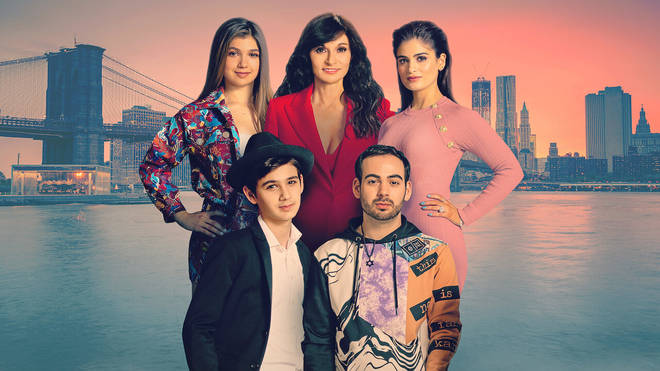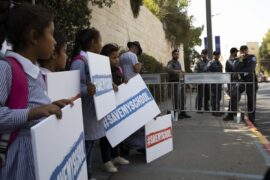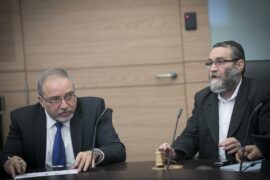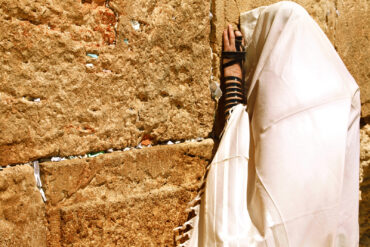The controversial new reality showThe controversial new reality show, My Unorthodox Life, has been drawing ire, praise and a great deal of attention from Jewish spaces online. The show centers around Julia Haart (Talia) – a woman who describes her upbringing as “yeshivish heimish” – leaving her community, family and faith behind to pursue a career in fashion and start a multi-million dollar company.
The show follows Haart’s relationship with her children, particularly the three out of four who follow her lead in leaving their community.
This isn’t meant as a critique or review of the show itself. As far as television content goes, it’s not worth the nearly nine hours. The show is toxically mind-numbing and is, as Julia’s youngest son would say, bittul Torah. What is important and interesting, however, is the reaction to the show on social media and the Jewish internet.
Some Jews were naturally offended by the exposé of their community. Many have suggesting that her community of Monsey, that has produced “frum” entrepreneurs, is innocent of the claims put forward by Haart. Some were upset by the criticisms but sympathized with her plight. A deeper analysis of this is required. The conversation as it exists today cannot provide a resolution, certainly not using dualistic logic.
Firstly, the existence of “Orthodox Judaism” itself is a feature of Jewish colonization, even if it was created to fight more formidable threats to our identity. Communities like Monsey or Borough Park may be viewed as the most “religious” communities by a great deal of Jews, and indeed its own members. But herein lies the deep problem with “Orthodoxy” – especially outside the land of Israel.
I think there’s a lot of truth in Haart’s crass critiques of the community she’s from. This is partially evidenced by the uproar surrounding her show. I even think there is something deeply Jewish about what she’s expressing, but her reactionary lifestyle (which she ironically calls “deprogramming”) is a deeper symptom of the colonization at the root of her critiques.
Haart doesn’t want to follow the halakhot, but also doesn’t reject the understanding or application of the halakhot in her community. She consistently calls the practices of her former community as “fundamentalist.” The term suggests that Haart sees the community she’s from as too dedicated to the Torah and what she has been raised to see as its only valid interpretation.
The fact that she sees a community that negates the historic mission of the Jewish people and evades some of the Torah’s most central and relevant mitzvot (like Yishuv Eretz Yisrael) as being the closest to an authentic relationship with the Torah and the Creator is telling. Like her critics, Haart sees a binary between the religious and the secular. “Religious” being the Jews wearing a particular garb, adhering to a limited checklist of mitzvot that are often relegated to a particular aesthetic, and maintaining an insular communal life meant to maintain control.
Both Haart’s critique of her upbringing and her upbringing itself are products of the same multi-layered colonization our people underwent in exile. Both come from a diasporic need to contextualize our people’s identity and experience in a manner that conforms with the norms and values of host nations. “Orthodox Judaism” – which developed in the post-enlightenment period, is seen as outdated in much the same way Western civilization looks at Christianity. Both Haart and her critics in the community she “escaped” from are contextualizing our people’s identity to fit another civilization’s mold. Many of the critical pieces attacking the show operate within a similar paradigm. None refute the norms of the times or culture, but simply take the other side of the argument within the Western ideological paradigm.
Each side claims to have found a “middle ground” between Western materialism and their “Yiddishkeit” as Julia’s ex-husband (who still identifies with his community) says on the show. “Everyone finds their own place in Judaism.”
The idea that Jewishness can exist on a spectrum is actually very authentic to our culture. After all, it is often quoted that the Torah has “70 faces.” But the conversation on the show is stunted at best. Limited between various degrees of participation in Western materialism and insular “Orthodoxy.”
Finding a middle ground between the two is to already compromise with two precepts that are actually both external to who we are, thus further diluting our identity.
With a deeper understanding of our identity, even a “fundamentalist” one would allow for an incredibly holistic and inclusive space to find authentic middle grounds between the inclinations of various types of Jews and the unique contributions they each bring to our people and collective mission.
A paradigm shift in Jewish communities is required to move past inauthentic divisions. After all, both sides of the debate are different accommodations that we have made to better fit in with Western civilization.
By building a Jewish society through decolonization, not deprogramming, the forces of our people’s various tribes can push Jewish history forward without submitting to external pressures that dilute our identity. A Julia Haart has something deeply Jewish to say, but it’s confined because neither of the worlds she straddles actually represent the Jewish ideal.





